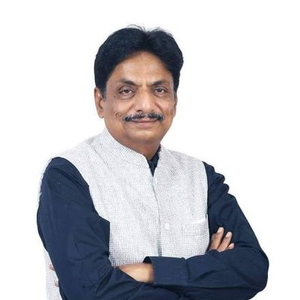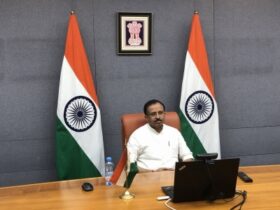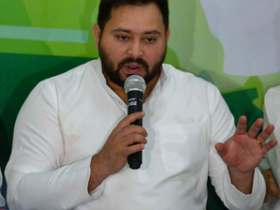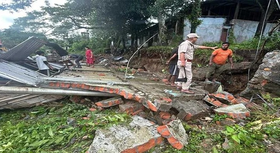Gandhinagar, Oct 9 (VOICE) Gujarat Health Minister Rishikesh Patel said on Wednesday that the state government has decided to increase the monthly salaries of contractual medical teachers by 30 per cent to 55 per cent.
He said that the move aims to address the shortage of medical professionals in government hospitals affiliated with medical colleges.
“The salary hike is expected to attract and retain more qualified doctors and teachers in these institutions, helping to improve healthcare services across the state,” the minister said.
Patel also highlighted that providing top-quality healthcare services to every citizen and ensuring high standards of education for medical students remain the government’s top priorities.
He further noted that the substantial increase in the salaries of medical teachers would help alleviate the shortage of doctors and educators in hospitals.
“The decision will be implemented from October 9, 2024, and applies to medical teachers who are not involved in private practice. This marks a step in ensuring better healthcare infrastructure, with professors now earning up to Rs 2,50,000 per month, associate professors up to Rs 2,20,000, assistant professors up to Rs 1,38,000, and tutors up to Rs 1,05,000. The hike reflects the state government’s commitment to strengthening its healthcare system and improving medical education,” the minister said.
In February 2024, the Health Minister announced that the state had collected Rs 671 crore from MBBS doctors who opted out of the mandatory one-year rural service after completing their education. However, Rs 270 crore is still pending from doctors who have yet to clear their dues.
He added that the bond policy, implemented by the state government, requires students benefiting from subsidised medical education to work in rural government health facilities.
Patel said that those who choose not to fulfil this obligation must pay a penalty of Rs 20 lakh, adding that the policy addresses the shortage of healthcare professionals in rural areas while ensuring that doctors contribute to the public health system.
–VOICE
janvi/dan














Leave a Reply